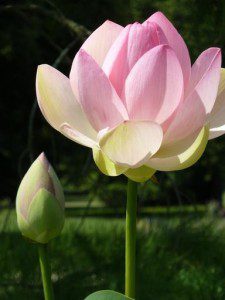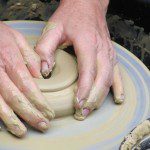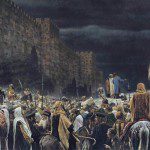
from what black wells of possibility,
how a thing will
unfold . . .
from A.R. Ammons, Poetics
I’ve noticed myself using this verb with some frequency lately, speaking of what I see unfolding in a little boy I love as he quietly goes about his own learning. Or what is unfolding in our marriage in this season of life as we make our way through adaptations and losses we didn’t fully anticipate. Or what is unfolding on the political scene—though that seems too gentle a verb some days for what is happening on the floor of Congress. Still, to imagine even in those troubled halls something quietly unfolding beneath the arguments and the interruptions and the accusations is to remember that always what is happening happens partly—or largely—beneath the surface by means we don’t fully fathom.
What unfolds was already there, hidden and waiting for soil, water, the fullness of time, the propitious circumstance, the appointed moment. The verb reminds us of how “time future [is] contained in time past”—not in a deterministic way, but in a way that, if we acknowledge it, modifies our too-rigid notions of cause and effect and our delusions of control. Some things we decide and determine. Some things we have simply to witness and receive.
Poets, musicians, dancers and children notice and name what unfolds: “Watch!” a child cries as a pill-bug uncurls or the last snip is completed and a snowflake emerges from a sheet of typing paper. Margaret Mackinnon, in a poem honoring Grant Wood’s paintings, remarks, “under the artist’s alchemy, / the reassuring fields of corn unfold,” suggesting how the artful image trains the eye to see and see again and keep seeing. Stephen Edgar in “The House of Time” speaks of those moments when time seems to stop and allow what has been coiled up and bounded to reveal itself—when “A single blink could comprehend, / and then unfold, / all time within that countless interim.” Jane Hirshfield, blessing a bride and groom on their wedding day, charges them to “Let the vow of this day . . . unfold itself inside your eyes.” And Mark Doty exquisitely remembers herons ascending: “I’ve seen /two white emissaries unfold / like heaven’s linen . . . .”
More classically, Wordsworth asks, “How does the Meadow-flower its bloom unfold?” and answers in the next line, “Because the lovely little flower is free /Down to its root, and, in that freedom, bold . . . .” In his “Hymn of Heavenly Beauty” Spenser speaks of how “sacred mysteries unfold.” And several of Shakespeare’s characters “unfold” their stories or explanations or arguments, disclosing with due discretion what they have harbored and held in trust until the moment reached its crisis.
All of this unfolding is testimony to how the Spirit works within us and among us, urging, allowing, opening a way, nudging us toward it, inviting, preventing, making us willing to stretch and open and receive and reveal what unfolds.
It’s not always an easy process, especially in human affairs. We control what we can. We make plans. We issue orders. We sign petitions. We resist, these days, a good many of us, dangerous policies and precipitous changes that put us all at risk. We pray and we watch and we act where we can, and the “course of human events” continues, past unfolding into present, showing us consequences that challenge us to rise to new levels of consciousness and develop new kinds of courage.
“The unfolding of your words gives light,” the Psalmist writes, “it imparts understanding to the simple.” Guidance isn’t given once for all, inscribed only on stone, but given and given, made new in each new circumstance, words made new as we read them, as we train them, like lamps, on what we face or fear. We come back to the words we rely on with new needs, and they unfold another layer of meaning. This is why St. Benedict taught his monks the practice of “holy reading.” Because words unfold. And there is light.












